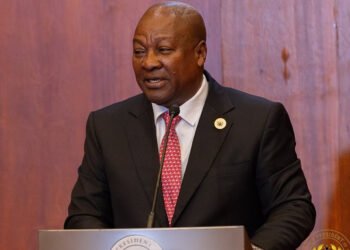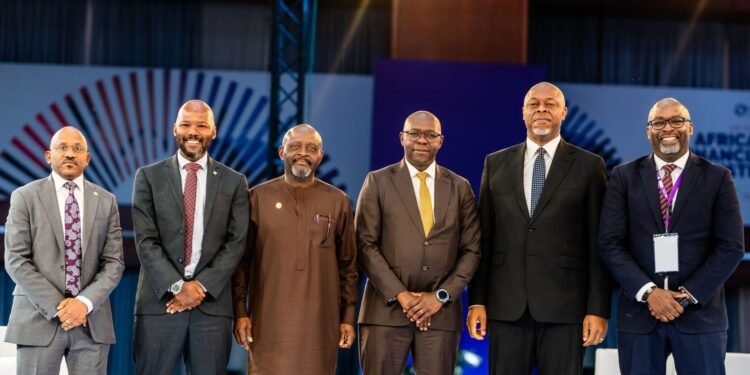The Ministry of Communication, Digital Technology, and Innovations has commenced the application of a statutory fine of GHC 10,000 per day against MultiChoice Ghana, operators of DSTV, for failing to submit critical pricing data requested under the Electronic Communications Act (ECA).
The fine took effect today, Friday, August 15, 2025. Sector Minister, Hon. Samuel Nartey George, announced the decision during a meeting with the DSTV team at the Ministry.
He explained that the requested data — including a detailed breakdown of bouquet prices, tax components, and comparative subscription rates in at least six other African countries — is essential to advancing the Ministry’s engagement with the company over the high cost of pay-TV services in Ghana.
According to the Minister, DSTV had earlier been granted an extension until Monday, August 11, 2025, to submit the requested information, but failed to meet the deadline.
“The regulator informed me that you requested an extension until Monday. Under the Electronic Communications Act, every day that an operator fails to provide requested information attracts a GHC 10,000 penalty. I agreed to wait until Monday rather than starting charges immediately, as the difference of a few days was not critical at that stage”.
Hon. Samuel Nartey George

Hon. Sam George noted that despite this concession, as of the date of the meeting, the National Communications Authority (NCA) confirmed that the information had still not been submitted.
“This makes it impossible to have a meaningful engagement, as the data we need to justify or challenge your pricing has not been submitted. From today, therefore, the Ministry will begin applying the statutory fine of GHC 10,000 per day until the full information is received”.
Hon. Samuel Nartey George
Statutory Requirement
The Minister clarified that the request for information is a statutory requirement separate from ongoing negotiations with the company over subscription prices.
He stressed that the government’s position is rooted in the law, which mandates operators to provide requested operational data when called upon by the regulator or the Ministry. “The law is clear, and we will enforce it. If necessary, we can freeze accounts to protect consumer interests,” he warned.
This development comes against the backdrop of a broader standoff between the government and MultiChoice Ghana over the cost of DSTV subscriptions. Earlier this year, the Ministry gave the company until August 7, 2025, to agree to a price reduction or risk suspension of its operating license.
The deadline was set after the company reportedly refused to commit to lowering subscription fees despite government proposals aimed at making the service more affordable for Ghanaian households.

The Minister maintained that once the company complies with the data request, the Ministry will conduct an objective review to determine the factors influencing DSTV’s pricing in Ghana.
“If the evidence shows taxes are the sole reason for high prices, I will advocate for a tax review. If not, we expect DSTV to comply with our directive to make subscriptions more affordable”.
Hon. Samuel Nartey George
Consumer advocacy groups have long argued that DSTV subscription fees in Ghana are disproportionately higher compared to other African markets, even when adjusted for taxes and operational costs. The Ministry’s demand for pricing data is part of a wider push to ensure transparency and fairness in the pay-TV sector.
Protecting Consumer Interest
Hon. Samuel Nartey George reiterated that the government’s actions are not intended to target any company unfairly but to protect the interests of consumers.
He emphasized that without accurate data on operational costs and pricing structures, the Ministry cannot make informed decisions or effectively negotiate on behalf of citizens. “Our role is to ensure that Ghanaian consumers get value for money. That starts with having the facts, and the facts come from the data we have requested,” he said.
The fine, which will accrue daily until the requested information is received, adds financial pressure on MultiChoice Ghana to comply. If the company continues to delay, the cumulative penalties could reach significant levels, in addition to the looming possibility of license suspension if the September deadline for price adjustments passes without resolution.

As the standoff continues, the Ministry has indicated its willingness to work constructively with DSTV once the information is provided. However, it has also signalled that it will not compromise on enforcing the provisions of the Electronic Communications Act.
“This is not about politics; it is about protecting the Ghanaian consumer. The law gives us the tools, and we will use them,” the Minister concluded. The coming weeks will be critical in determining whether MultiChoice Ghana chooses to comply with the Ministry’s request and avert further sanctions.
Until then, the daily fine remains in effect, signalling the government’s determination to enforce transparency and accountability in the telecommunications and broadcasting sectors.
READ ALSO: Nigeria’s Inflation Eases As Economy Shows Cautious Growth






















